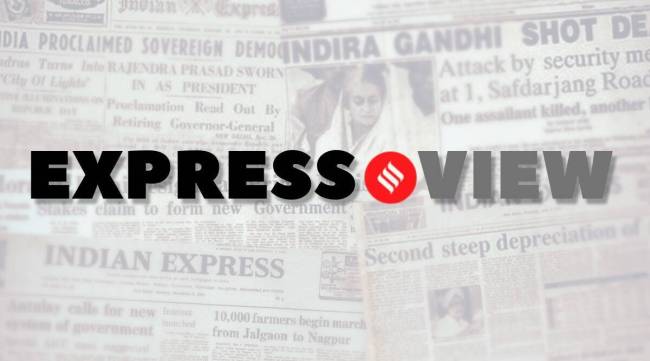Opinion Express View on Saudi and Iran: Welcome detente
Their rapprochement promises stability in West Asia. It suits India’s interests in the region
 Amirabdollahian, who met Saudi Crown Prince Mohammed bin Salman in Jeddah, called the discussions as “frank, beneficial and productive”.
Amirabdollahian, who met Saudi Crown Prince Mohammed bin Salman in Jeddah, called the discussions as “frank, beneficial and productive”. Iranian foreign minister Hossein Amirabdollahian’s visit to Saudi Arabia this week is a first since 2015, when then Iranian foreign minister, Javad Zarif, had travelled to Riyadh to offer condolences on the death of King Abdullah. The visit comes five months after Saudi Arabia and Iran agreed to resume diplomatic ties, in a deal in March this year widely perceived to be brokered by China. Behind the scenes, Oman and Iraq are said to have helped the negotiations between the two sides. Amirabdollahian, who met Saudi Crown Prince Mohammed bin Salman in Jeddah, called the discussions as “frank, beneficial and productive”, the choice of words indicating that the desire to normalise bilateral ties is bearing fruit. Saudi foreign minister Prince Faisal bin Farhan visited Iran in June this year.
While the diplomatic moves to improve ties are making steady progress, as per available indications, the history of their ties has witnessed several ups and downs over the years. Ties have been strained over the leadership role in the region between the Shia-led Iran and the Sunni-led Saudi Arabia. Post the Iranian Revolution in 1979, the two sides have harboured suspicions about each other’s intentions. Iran had accused Saudi Arabia of supporting Baghdad in the Iran-Iraq war (1980-88). Saudis were accused of supporting the rebels against Iran-backed President Bashar al-Assad in the civil war that has raged in Syria since 2011. The Iranian nuclear programme has also furthered the suspicions. Ties worsened in 2016 when Saudi Arabia executed a top Shia cleric, after which Iranian protesters attacked the Saudi embassy in Tehran, leading to cutting off of diplomatic ties. Before that diplomatic ties had been cut off in 1987-88, when tension between the regional rivals peaked over the death of Iranian pilgrims in clashes in Mecca and attacks on the Saudi embassy in Tehran. With the reliability of the US as a partner in question and China in play, the Saudi-Iran rapprochement is aimed at regional stability.
For India, which has over 80 lakh Indians in the West Asian and the Gulf region, this stability is extremely important. Also, India’s energy security is dependent on how well its ties are with the two major sources of crude. Abdollahian said in a social media post after meeting the Saudi Crown prince, adding that the countries “agree on the security and development of all in the region”. India has maintained close ties with both Riyadh and Tehran. Delhi, no doubt, will watch these developments carefully, as it has implications for its national interest. And it would not want to lose out vis-a-vis China.





